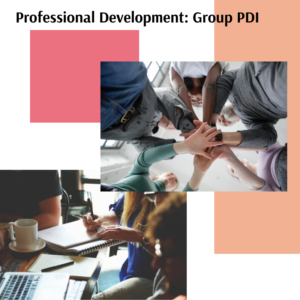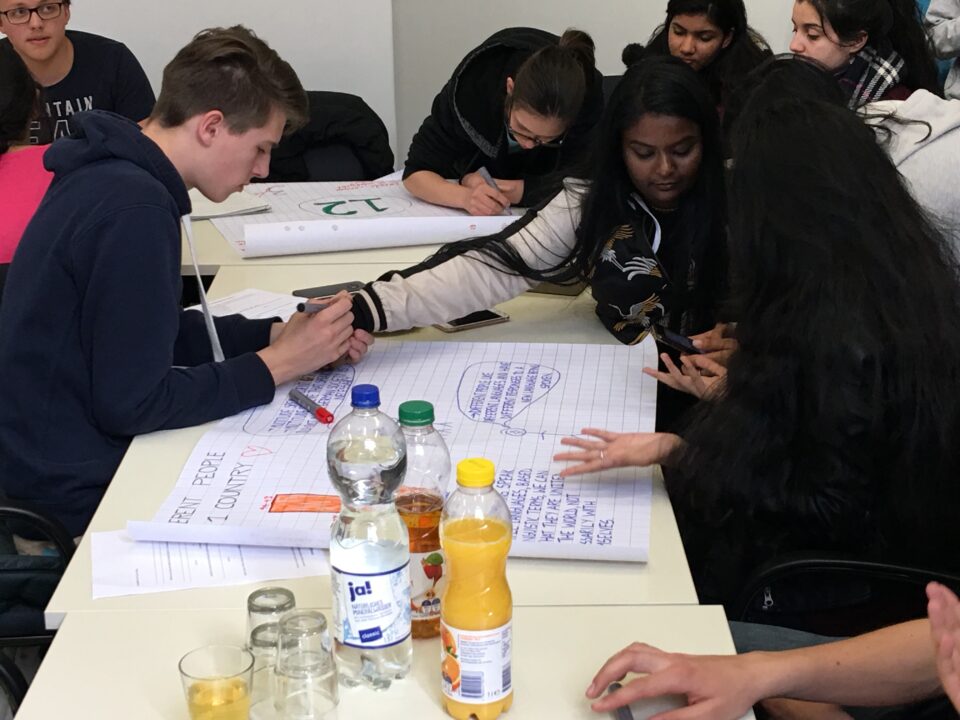CPD: How to organise Group PDI

The Importance of Articulated Roles
June 18, 2020
The ultimate guide for academic managers with big teams and limited resources
Hello! My name is Lara and I’m the co-founder of Impact Services International. I worked in the educational sector since 1992 in the UK where I manage large academic teams and even larger student populations.
The aim of this article is to introduce the idea of Group PDI and why it may be a good option for you. Managing staff performance, designing and managing performance review systems is one of the many tasks an academic manager or DOS has. It is not uncommon to call these meetings either PDI meetings or appraisals, they usually take place at least once a year and they are a great opportunity to record teachers’ progression and successes. Any academic manager will be familiar with the time pressure associated with rounds of PDIs and how easily they can turn into a box-ticking exercise, losing their true value.
To understand why Group PDIs may be a successful option for you, first, we need to clarify what these meetings are:
Are they appraisals or professional development interviews? Appraisals focus on assessing performance so they look at the PAST, PDIs focus on developing skills and growing knowledge so they look at the FUTURE. It is common to use appraisal and PDI as interchangeable; however, they set to achieve two very different aims.
In some institutions, you may find that the scheme is a hybrid so it includes a part that looks at the past and one at the future. If you organise individual meetings this is probably not much of a problem but if you have a large team, your time will not really allow for 60+ individual meetings a year plus reviews halfway. But even if you manage a team of let’s say 15 teachers, Group PDIs are still a valuable option. Let’s see why.
Looking at teachers’ training needs and professional development is one of the most fascinating aspects of my job, it’s when I have the opportunity to look at the future with my team both from their perspective and mine (strategic objectives) because, when looking at the future, you should not miss the opportunity to upskill your staff to get your school ready for future projects. Here is how to organise Group PDI in three simple steps:
- Before the meeting teachers received their PDI form and complete with what they achieved in the last 12 months, achievements need to be evidenced plus a review of training undertaken
- The Meeting is one hour long and is attended by 4 to a maximum of 6 teachers.
- After all, meetings have taken place, every teacher receives the product produced by the process.
Looking at past achievements and successes during the group meeting is a great way to celebrate teachers’ learning and achievement while sharing their experiences with the rest of the group. This sharing has several positive effects: it allows for celebration in a public setting, it allows teachers to learn what colleagues have been working on, it inspires them for their own plan, it encourages mentoring.
During the meeting teachers also look at the future to shape their personal development plan and here you have to consider a number of factors, depending on the requirements of where you work:
- Do you have departmental or school’s objectives? If so, you probably need to include them in your CPD programme
- Will you be inspected? If so, you need to include improvements and targets into the plan.
- Do you have a budget to deliver CPD? If you do you will need to prioritise spending, if you don’t you will need to find creative ways to achieve your targets through other means.
But let’s go back to the Group PDI. Over the years I experimented with different formats of Group PDI and this is what I learnt:
- Professional Development Interviews need to take place at convenient times. This may sound obvious but often meeting are arranged to fit the manager more than the teacher. My pro-tips are: offer a number of options, offer the meeting during downtime in the timetable, offer meeting remotely.
- Agree with your team on what the purpose of the interviews is: are they evaluative, developmental or both? These are fundamental questions and both sides need to agree on the answer.
- Agree with your team on what the main focus of the developmental part will be. This can be taken from past inspections, teachers’ needs, students’ feedback.
- Review the form, sometimes called Individual Report. In my experience, the report is written by the line manager and then stored in HR. I learnt that shifting the ownership of the report from the manager to the teacher is a game-changer: the teacher is the best person to describe their successes and struggles, what they learnt and what their gaps are, their direction for further development.
- Make sure the process produces a product like a report, a list of activities, reflection on practice, etc.
Group PDI offers all the benefits listed above plus the fact that you reduce the total meeting time by 4 to 6 times, which should not be underestimated. However, not all teachers will adapt to this instantly so it is important to offer the individual meeting where necessary and allow the enthusiasm of the team to gradually persuade them to join one of the group meetings.
I hope this article inspired you and if you need any help, get in touch lara@impactinter.com.
And as always, show your team your love!
Written by Lara Panzini
About the author
Lara Panzini started her carrier in education as a qualified primary school teacher. She holds a BSc (First Class Honours) Professional Studies from London University – Academic research methods applied to the workplace. She specialised in language teaching by obtaining a TEFL certificate and a certificate in Teaching Italian as a Foreign Language, RSA Diploma in Teaching Foreign Language to Adults (DTFLA), RSA Assessor Award: Training and Development (NCVQ: Level 3) and is a Business Cultural Trainer.
Related posts
Still have questions or need help? Give us a call at
For Dubai and Middle East Office Contact



